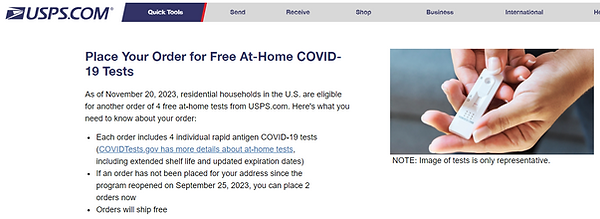
COVID Home Tests
How do I properly use a home COVID test? Where do I get COVID at-home tests? I tested positive with a home COVID test, now what?
Call NCDHD at 402-336-2406 if you have specific questions or need assistance.
How do I get a home COVID test?


NCDHD has at home test kits that you can pick up for free! To get yours, stop in our office in O'Neill, 422 E. Douglas St. during regular business hours, or stop at any of the NCDHD Immunization clinics. For the calendar with dates and times of these clinics, click here. Please check back to see what other communities will have free test kits available to be picked up.
For at home COVID-19 test kits delivered to your home, click here to find out information and how to order them.
Need help placing an order for your at-home tests?
Call 1-800-232-0233 (TTY 1-888-720-7489).
You can also check with your local pharmacies to see if/where at-home tests are available.
Need help finding an expiration date for an at home COVID test? Click here.

How do I properly use a home COVID test?
Nebraska Medicine created this video on how to perform a COVID home test properly.
I tested positive with a COVID home test.
Now what?
You've tested positive with a home COVID test. View the Respiratory Virus Guidance page and follow the recommendations for Isolation.
Also, please fill out this survey and answer "At Home Testing" for question #3.
There is no need to call NCDHD or your medical provider unless you have specific questions or concerns.
Understanding the different COVID tests
There are two types of tests available for COVID-19: polymerase chain reaction (PCR) and antigen. Both tests detect whether an individual is currently infected with COVID-19.
PCR
PCR tests look for pieces of SARS-CoV-2, the virus that causes COVID-19, in the nose, throat, or other areas in the respiratory tract to determine if the person has an active infection.
Antigen
Antigen tests look for pieces of proteins that make up the SARS-CoV-2 virus to determine if the person has an active infection. The tests are most effective in people who are either symptomatic or near the peak of their infection. Their best use is to stop people who are most likely to spread the virus. They are not as sensitive as PCR tests.
